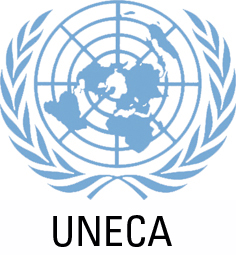Focal point
Location
P.O. Box 3001
Addis Ababa, Ethiopia
Established by the Economic and Social Council (ECOSOC) of the United Nations (UN) in 1958 as one of the UN's five regional commissions, ECA's mandate is to promote the economic and social development of its member States, foster intra-regional integration, and promote international cooperation for Africa's development.
Made up of 54 member States, and playing a dual role as a regional arm of the UN and as a key component of the African institutional landscape, ECA is well positioned to make unique contributions to address the Continent’s development challenges.
ECA’s thematic areas of focus are as follows:
- Macroeconomic Policy
- Regional Integration and Trade
- Social Development
- Natural Resources
- Innovation and Technology
- Gender
- Governance
Members:
Resources
Displaying 761 - 765 of 872Suggestions for agricultural planning in developing countries, particularly in Africa
Another basic feature of agricultural planning is the Organization of an agricultural statistical service with the help of the local authorities. Thus it is necessary to organize not only the collection of statistical data regarding crops, but also to make periodical inventories of the types of soil available, the crops for which they can be used, of water and meteorological data, of data on products, income, employment, coefficients of capital, labour productivity, price indices, income and price elasticities of demand, costs, internal and external markets.
Expérience tunisienne en matière d'établissement du cadastre : communication présentée par le gouvernement de la République tunisienne
Depuis l’institution en Tunisie de la loi immobilière du 1er juillet 1885 et à ce jour, la superficie totale des terres immatriculées n’a pas encore atteint la moitié des surfaces immatriculables. Dès son accession à l’indépendance, la Tunisie s’est fixé comme premier objectif à atteindre dans sa lutte contre le sous-développement, le décollage économique, lequel dépend dans une large mesure de la mise en valeur des terres.
L' enseignement agricole en Afrique : origines, objectifs et activités du programme spécial d' éducation et de formation en Afrique
La deuxième guerre mondiale, et notamment depuis dix ans, le role et l'importance de l'enseignement agricole en Afrique ont connu des changements profonds et d'une ampleur sans précédent.


